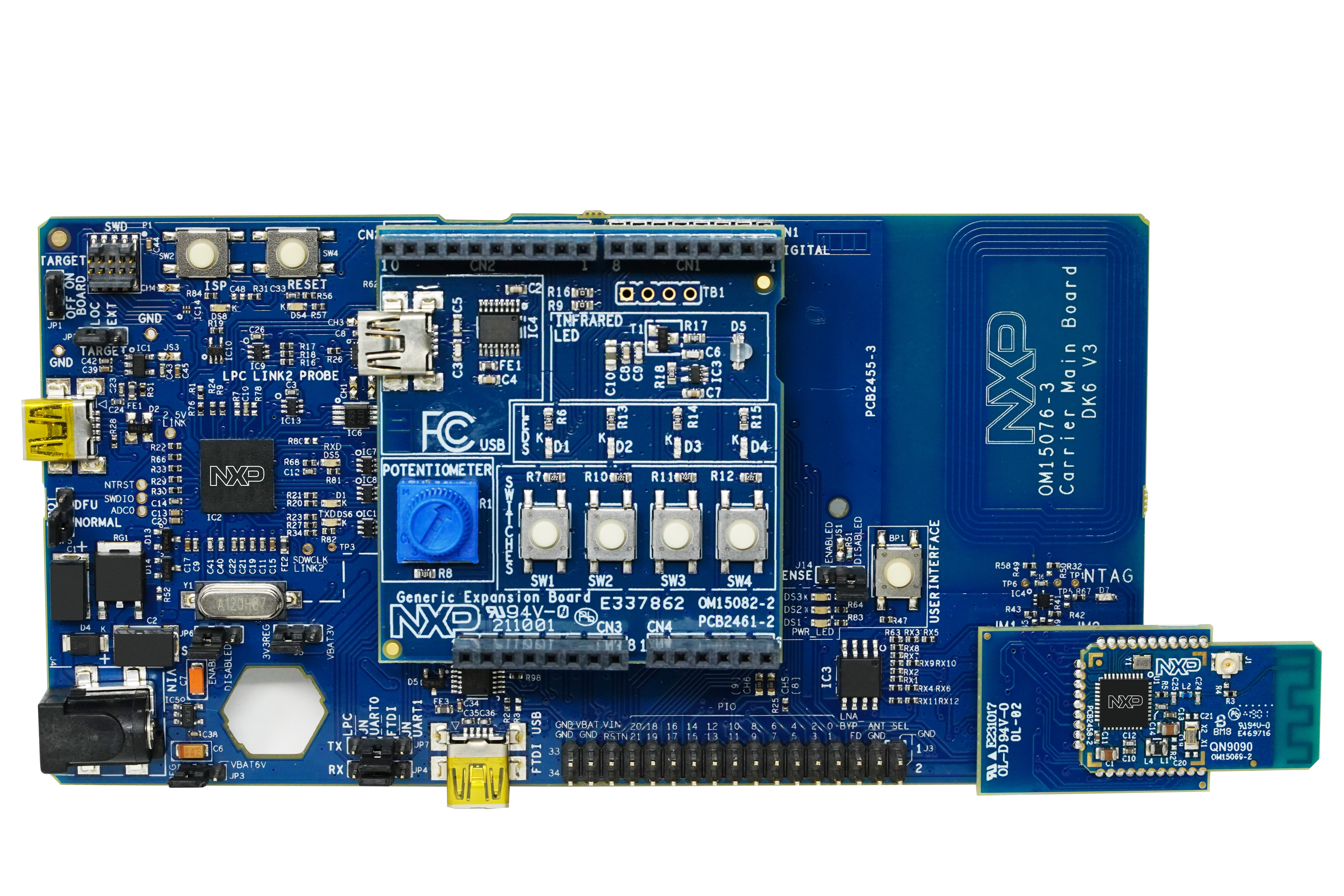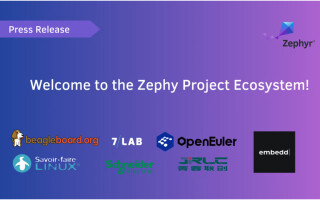NXP Delivers New Bluetooth Microcontroller Intelligence with Value-added NFC Peripheral
January 30, 2020
News

The QN9090 and QN9030 devices are powered by an Arm Cortex-M4 running at 48MHz and include up to 640KB onboard flash and 152 KB SRAM.
NXP Semiconductors N.V. announced the availability of its QN9090 and QN9030 Bluetooth 5 System on Chip (SoC) with hardware compatible options for 802.15.4, Multiprotocol RF, and optional NFC technology. The latest additions to its QN series of Bluetooth Low Energy (BLE) devices enable next generation intelligent connected devices with low power consumption and a high-capacity CPU with a wide operating temperature range, a mix of analog and digital peripherals, and BLE mesh support.
The QN9090 and QN9030 devices are powered by an Arm Cortex-M4 running at 48MHz and include up to 640KB onboard flash and 152 KB SRAM, providing storage space and flexibility for complex applications and safe over-the-air (OTA) updates. The QN Series devices help accelerate development and time-to-market for developers creating products with rich features for diverse IoT applications such as personal healthcare devices, sports and fitness trackers, connected appliances, building and home automation, toys and gaming peripherals, as well as beacons, and mesh networks.
As NXP’s BLE SoC with NFC integrated on chip, the QN9090T and QN9030T variants support out-of-band wireless communications to enable different use cases. By tapping an IoT device based on the QN9090T to a smartphone, tablet or other NFC reader device, a BLE connection can be quickly established, simplifying the pairing process. The built in NFC NTAG eliminates the need for the tag to be powered and creates opportunities for diagnostics or device commissioning in stages of the device life cycle.
NXP’s commitment to longevity in the market
• Low-power: Ultra-low power solution is ideal for Bluetooth, battery operated applications, featuring 4.3mA Rx current and 7.3mA Tx current @+0dBm.
• CPU with large and scalable embedded flash memory and SRAM: 48 MHz ARM Cortext-M4, 640KB of embedded flash, and 152KB of SRAM.
• Advanced integration with robust peripherals including NFC NTAG: Reduces system board footprint and cost of manufacturing with digital and analog integration.
• Microcontroller intelligence: Rich set of MCU capabilities, including various low power modes, digital MIC interface with wake up on audio event and Quad SPI NOR flash memory controller for high density data or code storage.
• Standardized connectivity: 2.4GHz Bluetooth Low Energy 5.0 transceiver supporting 2Mbps and up to 8 concurrent Bluetooth connections with antenna diversity support.
• Integrated power amplifiers with high transmit power (up to +11 dBm) to make long-distance transmission possible.
• Wide temperature range: -40 ? to +125 ?, applicable in various environments.
• Broad portfolio: NXP offers pin-to-pin compatible solutions for 802.15.4 and Multiprotocol RF devices along with leading solutions across the spectrum of embedded processing.
 NXP offers comprehensive enablement to help speed time-to-market
NXP offers comprehensive enablement to help speed time-to-market
NXP MCUXpresso SDK for QN is compatible with the latest toolchains from IAR and NXP’s MCUXpresso IDE. The full MCUXpresso Suite of software and tools provides a seamless software experience across NXP devices as well as a fast path to add Bluetooth LE capability to an existing design on other NXP devices. The NXP IoT Toolbox smart device application is available, along with the NXP Connectivity Tool and Test Tool are to help the developers evaluate RF performance and test efficiently.
Product availability and support
The QN9090 and QN9030 devices are available now from NXP and its distribution partners.
For more information, please visit: www.nxp.com/QN9090.





